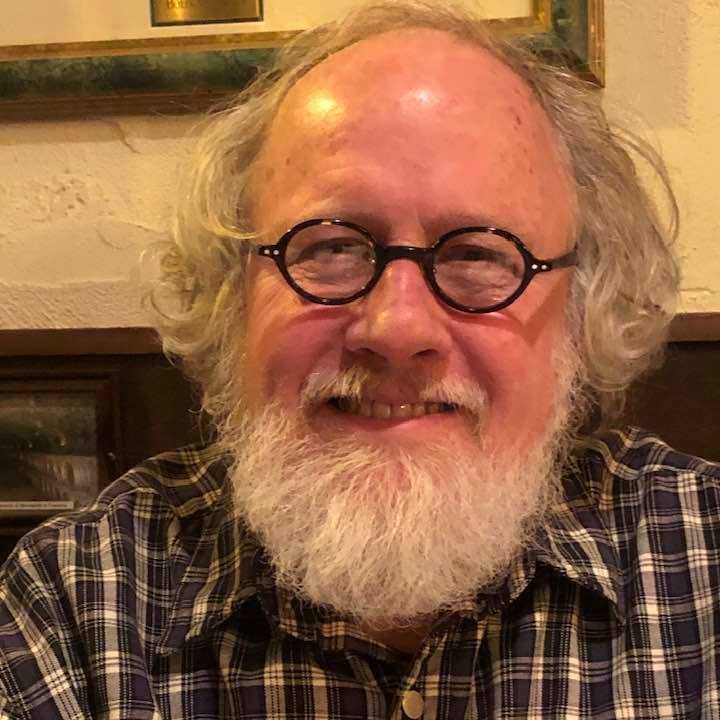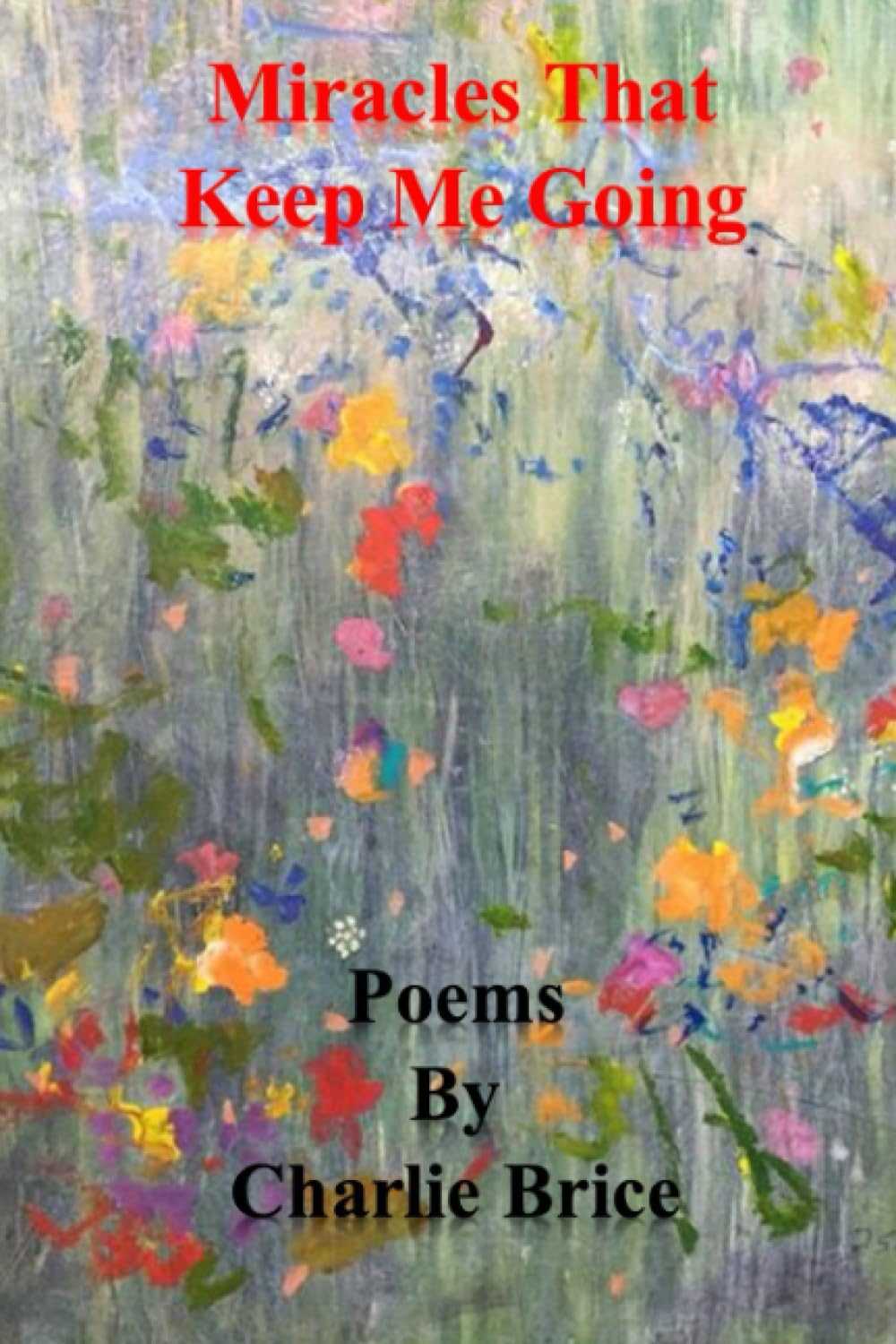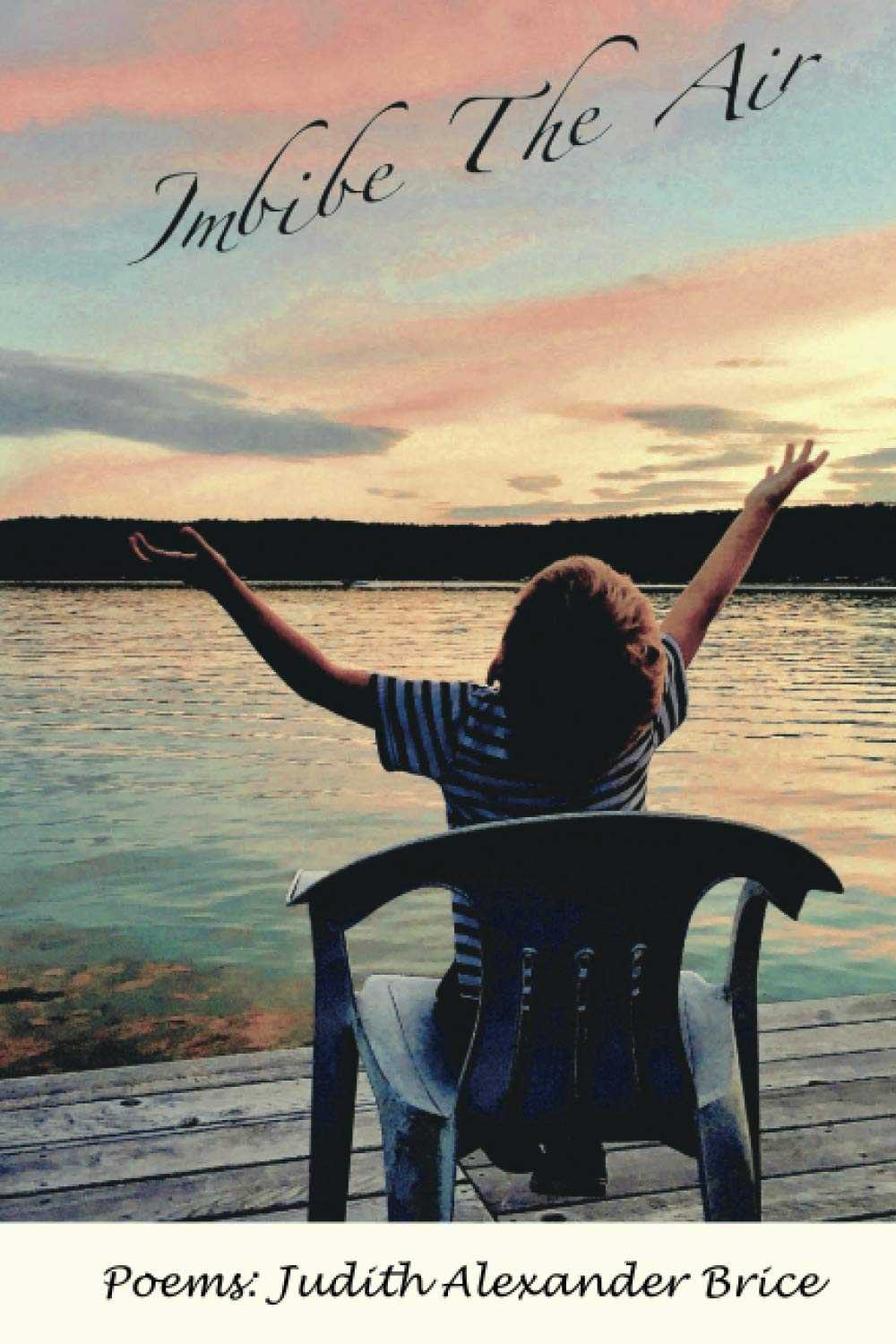Michigan Stories: An Interview with Michigan Poets Charles W. Brice & Judy Alexander Brice
Michigan is full of stories of all kinds. At Cronicle, we love stories about people who are innovating, creating, and building community, and who love this state as much as we do. I sat down with acquaintances Charlie and Judy Brice, whom I had met previously at Michigan's literary writers' retreat Bear River Writers Retreat, which has happened now for over 20 years at Camp Michigania on the shores of Lake Walloon.
Charlie and Judy are a longtime married couple with a previous career in the counseling arts and psychology. They are a delightful, light-hearted pair of creatives whom I know you will love. Here's our interview, with some details at the end about how you can find them in person or check out their work.
Interview with Charles W. Brice & Judy Alexander Brice
Laura: Tell me how you met and your favorite thing about working side by side as writers or spouses.
Judy: we didn’t start out as writers. It was kind of a coincidence of sorts. I started out as a psychiatrist, and Charlie started out as a hospital attendant in a hospital where I was working as a first-year psychiatry intern in Denver, Colorado. I was from Boston, and Charlie was from Wyoming; so we were two unlikely people to meet. Charlie is six years younger.
Charlie: She took advantage of me in the med room [laughs]. How old was I?
Judy: Fourteen.
Charlie: I was twelve. I spent several months then switched to psychiatrist.... I got into grad school in Pittsburgh, and Judy was nice enough to move.
Judy: We got married before we left Denver. When I was in med school I wrote three poems, and that was all I wrote.
Charlie: She showed me those poems, and I didn’t write another poem for another 20 years! "Whatever I’m doing," I thought, "that’s just not poetry." This was remarkable work.
Judy: I didn’t write for many years after that, and neither did Charlie. I was busy, and he was busy being intimidating.
[both laugh]
Charlie: I was a psychologist for a while, and we had busy careers. We had a cabin on Walloon Lake in Petoskey (northern Michigan). We loved it, and we loved Michigan. I thought I was going to be a fiction writer. We were in a bookstore in Petoskey, and I saw a pamphlet for the Walloon writers' retreat right on our lake.
Judy: I said, "I can’t write," and he said, "yes you can." I said, "that was 30 years ago," but he said they were great poems and twisted my arm to go.
Charlie: We go to the conference, and nobody likes my fiction and everybody loves Judy’s poetry. [laugh]
One of the teachers was Maria Gillan, Paterson Literary Review editor. Judy talked me into going to this poetry workshop. Maria is a great teacher, poet, and now a great artist. She gets up and says, "You know, one way to rope a reader into a poem is to use a song. I want you to write a poem and use a song."
I wrote this poem called The Game about going to a minor league baseball game with Ari our son and Judy. The song was Take Me Out to the Ballgame. Two weeks later it got accepted, and I had all these stories out there that were going nowhere.
Judy: There was a possibility of writing a movie, but nothing materialized. Meanwhile, Charlie got more invested in writing, and Maria hooked me off the bat and liked what I wrote in her workshop. I had written these poems out of boredom and frustration.
Charlie: How do you get bored at Harvard Medical School?
Judy: Anyway... Maria has published a lot of our work, and she has a journal and a competition once a year, the Allen Ginsburg Poetry Contest.
Charlie: I came in third one year.
Judy: I came in honorable mention.
Charlie: There’s no competition, but I came in third.
Judy: Often Charlie will say, "I got mentioned, did you get mentioned?"
Charlie: So then we had this really nice career, I was a psychoanalyst, Judy was a psychiatrist. All the men on my dad’s side of the family die at 54, so when I was 54 I decided to retire. The next year Judy retired.
Judy: I had severe problems with my health, so I was having trouble being available to my patients. I decided at 62 I should retire. By that time both of us were enjoying writing.
Charlie: I told people we had the career first, because you would have to have a unique mental illness to think you can make money writing. We were fortunate we did, and we both loved our work.
Laura: Has working near each other impacted your work?
Charlie: We’re not near each other! I’m up on the third floor. But to be serious, we’re each other’s first reader, we critique and help each other. She’s a wonderful critic. I always disagree with what she says about my work. Completely disagree. Then about 10-20 minutes later I see that she’s absolutely right.
Judy: I always think he’s completely right, and then think maybe I was right in the first place. We write very differently. I’m much more obsessive about my work. I have written 150 drafts of my most difficult poems. Two or three of my best poems are like that. But some of them I have written 50-60 drafts. I don’t think Charlie writes like that.
Charlie: At least 10 drafts but fewer than 30. I would not call what Judy does obsessive. She’s devoted to her craft, and I admire that she doesn't let go until she is happy with the product. But I know I’m a better poet because of her reading my work. We’re different writers: she's a lyric poet. I’m a narrative poet. She’s Robert Frost, and I’m more Bukowski.
Laura: Judy, what’s your greatest inspiration in writing?
Judy: I like the way words bump into each other, how they sound, and how they can be used together, or how they might clash or are consonant and then clash. I love the sound of words.
I go along thinking I don't have anything to write about today, then something new will inspire me. I went to medical school in Boston, so I loved the ocean. We have these friends who love the ocean, and every year would go to a place near Nantucket. This one year we kept saying stop here and visit us on your way to Boston from Toledo. The woman of the couple has gotten involved in the art museum in Toledo in a prestigious position. This year they were going east focusing on museums in Boston but were going to spend a little time on the beaches. I said, "Go to this beach outside Boston." I just started writing “Go to Wingersheek I say,” and it was about my love of the sun and the beach. That’s how a poem gets started.
Charlie: What keeps me going every day writing is that I feel the best when I’m writing. I feel the best that I am is when I’m writing. What really keeps me going about the poetry is that I want to find out how it’s going to turn out. I don’t know, and I love that part!
Maybe I have an idea nine times out of 10, and I don’t even get there. I start writing and things start to come to me. I’m not a believer at all, but it’s almost like a mystical experience like where did that line come from, and how did I end the poem here? I just want to see how this is going to turn out.
I spend the mornings like this: I read like crazy, I read everybody -- just finished Jack Riddle’s new book All At Once, and recently lots of William Blake. I’ll read that stuff, something will speak to me out of one of those poems, and soon I’ve got my own poem. I just a wrote a poem called "Aw Sunflower" (original title: one of Blake’s), but I actually tried to channel Blake and write this from his voice. I once wrote a poem about a woman having a miscarriage and shoplifting: I think this idea of appropriating other people’s work doesn’t apply when you can actually live in someone else’s experience. It’s an achievement in that case. I go up in the afternoons, that’s when I write. I love it. That process of discovery is just fantastic.
Laura: Challenges of being an artist?
Charlie: We’re lucky we’re retired, but the biggest challenge is still time. Especially for people who are working. Bob Walicki is a poet in Pittsburgh, and he’s a plumber! He works in a hospital, first line during COVID, and it’s tough. And yet he just got another book accepted, I think it’s his third. I admire that. These guys working 40-50 hours a week and then writing. For me, it’s work to submit. Every day I try to either write a poem, edit a poem, or submit. Because submitting, I feel, is part of the creative process.
Judy: The other challenge for us and a lot of people is that it has been a lot worse since COVID [dealing with health issues].... I think one of the hard parts about being writers for us now especially with my health challenges is that it’s not easy to go out with people anymore. We used to say let’s quit at 5, call somebody up, and go to dinner.... We’ve gone to poetry readings, but we don’t get out as much and it’s harder to be social when you’re a writer.
Judy and Charlie Brice travel between Pittsburgh and Michigan for poetry readings and host events online. If you would like to check out their amazing work or follow along on their adventures, here are some places you can find their work:
Judy's latest release: Imbibe the Air, David Robert Books, 2021.
Judy's newest upcoming book, A Whisper Branch, will be published by David Robert Books.
Charlie's latest book is Miracles That Keep Me Going, WordTech Editions, 2023.
Charlie has an upcoming release titled Tragedy in the Arugula Aisle, which will be published by Arroyo Seco Press in the next six months or so.




